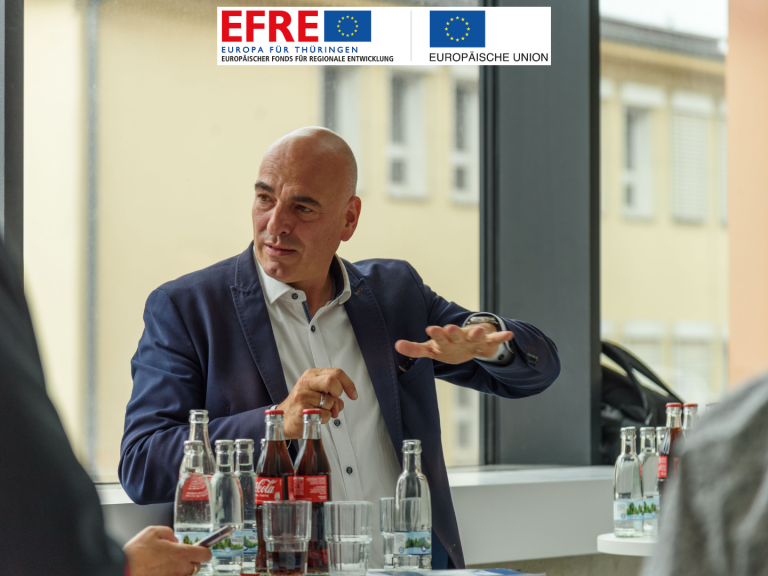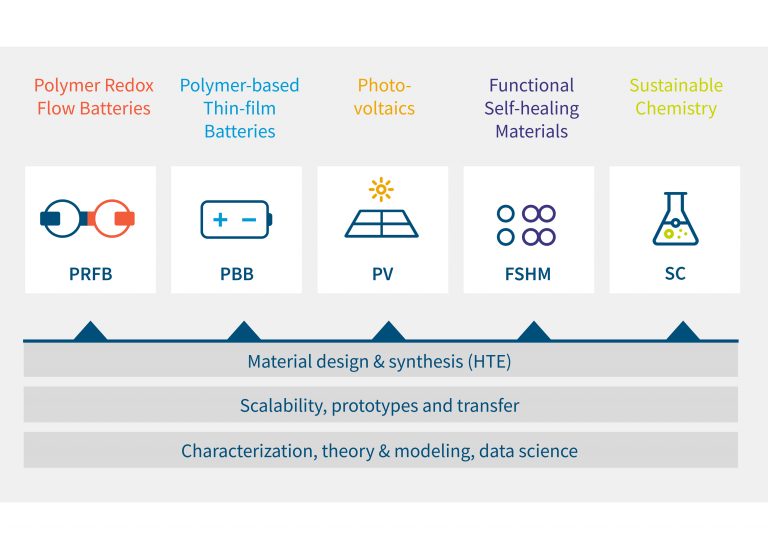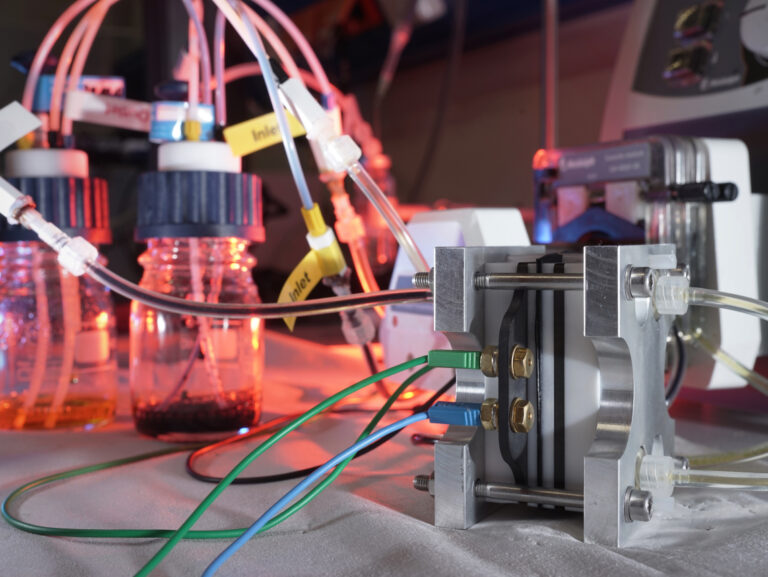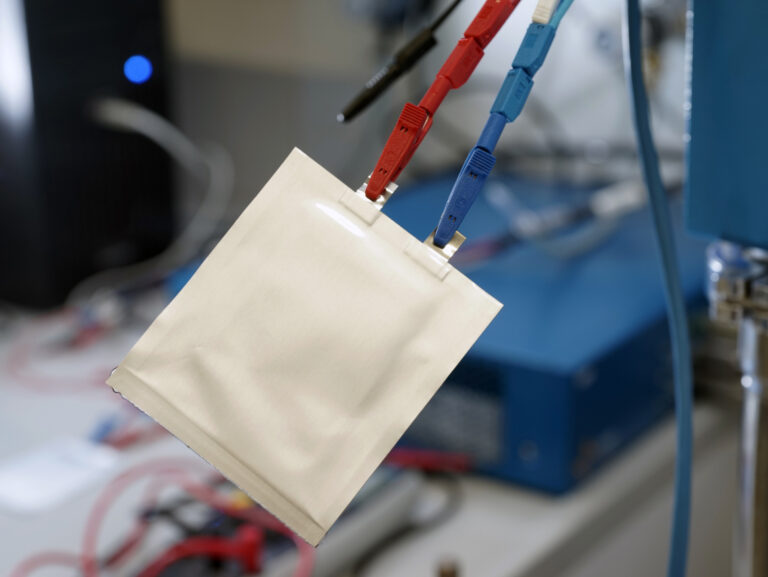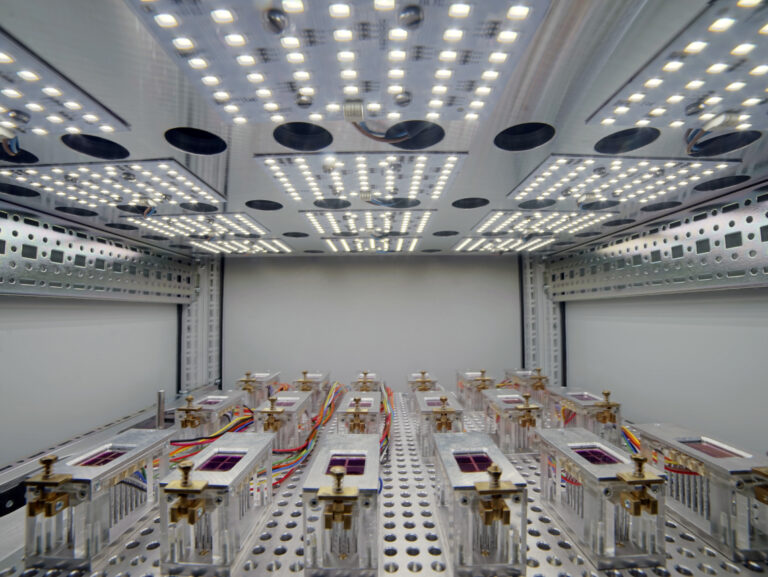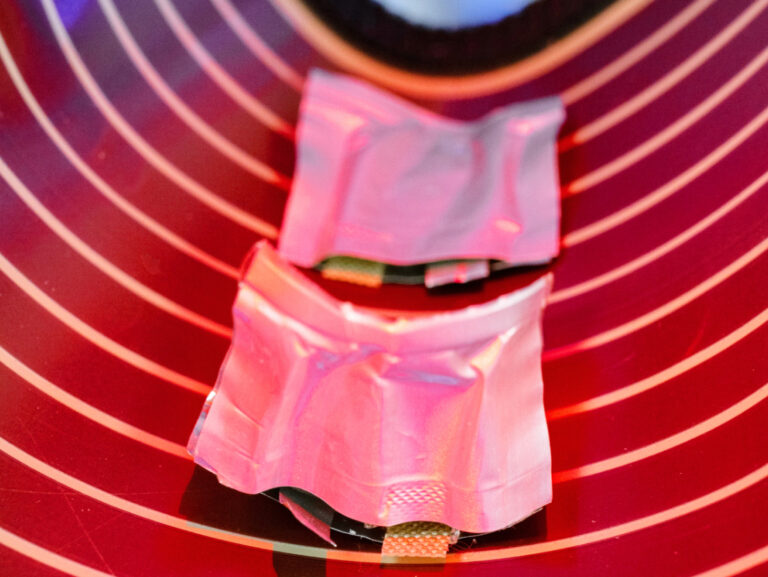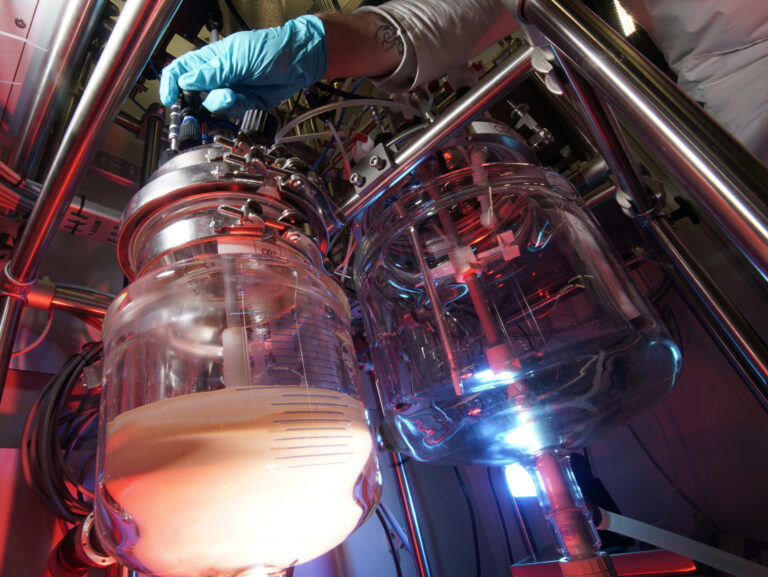At the newly founded Helmholtz Institute for Polymers in Energy Applications HIPOLE Jena, Helmholtz-Zentrum Berlin für Materialien und Energie (HZB) and Friedrich Schiller University Jena (FSU Jena) work together in the sphere of energy storage and energy conversion.
In order to achieve climate neutrality in Germany within the next 20 years, we are researching highly efficient, scalable, cost-effective and sustainably produced energy technologies.
To reach this goal, HIPOLE Jena integrates world-class expertise in polymer chemistry, materials science, high-throughput experiments and artificial intelligence.

